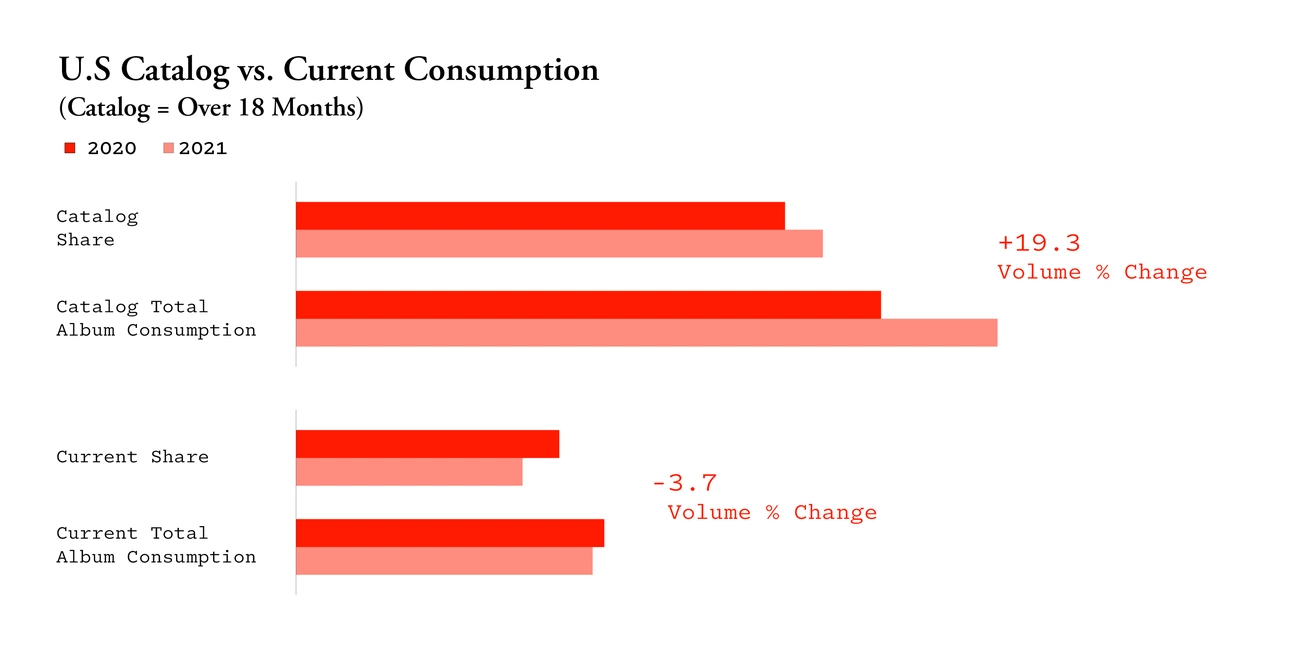The Death of "New" Music
-
As @bachophile said:
"the masterpieces of rock music which i grew up with are all but lost to the current generations of kids"
Is Old Music Killing New Music?](https://www.theatlantic.com/ideas/archive/2022/01/old-music-killing-new-music/621339/)
Old songs now represent 70 percent of the U.S. music market, according to the latest numbers from MRC Data, a music-analytics firm. Those who make a living from new music—especially that endangered species known as the working musician—should look at these figures with fear and trembling. But the news gets worse: The new-music market is actually shrinking. All the growth in the market is coming from old songs.

The 200 most popular new tracks now regularly account for less than 5 percent of total streams. That rate was twice as high just three years ago. The mix of songs actually purchased by consumers is even more tilted toward older music. The current list of most-downloaded tracks on iTunes is filled with the names of bands from the previous century, such as Creedence Clearwater Revival and The Police.
Never before in history have new tracks attained hit status while generating so little cultural impact. In fact, the audience seems to be embracing the hits of decades past instead. Success was always short-lived in the music business, but now even new songs that become bona fide hits can pass unnoticed by much of the population.
Only songs released in the past 18 months get classified as “new” in the MRC database, so people could conceivably be listening to a lot of two-year-old songs, rather than 60-year-old ones. But I doubt these old playlists consist of songs from the year before last. Even if they did, that fact would still represent a repudiation of the pop-culture industry, which is almost entirely focused on what’s happening right now.
Consider these other trends:
The leading area of investment in the music business is old songs. Investment firms are getting into bidding wars to buy publishing catalogs from aging rock and pop stars.
The song catalogs in most demand are by musicians who are in their 70s or 80s (Bob Dylan, Paul Simon, Bruce Springsteen) or already dead (David Bowie, James Brown).
Even major record labels are participating in the rush to old music: Universal Music, Sony Music, Warner Music, and others are buying up publishing catalogs and investing huge sums in old tunes. In a previous time, that money would have been used to launch new artists.
The best-selling physical format in music is the vinyl LP, which is more than 70 years old. I’ve seen no signs that the record labels are investing in a newer, better alternative—because, here too, old is viewed as superior to new.
In fact, record labels—once a source of innovation in consumer products—don’t spend any money on research and development to revitalize their business, although every other industry looks to innovation for growth and consumer excitement.
Record stores are caught up in the same time warp. In an earlier era, they aggressively marketed new music, but now they make more money from vinyl reissues and used LPs.
Radio stations are contributing to the stagnation, putting fewer new songs into their rotation, or—judging by the offerings on my satellite-radio lineup—completely ignoring new music in favor of old hits.
When a new song overcomes these obstacles and actually becomes a hit, the risk of copyright lawsuits is greater than ever before. The risks have increased enormously since the “Blurred Lines” jury decision of 2015, and the result is that additional cash gets transferred from today’s musicians to old (or deceased) artists.
Adding to the nightmare, dead musicians are now coming back to life in virtual form—via holograms and “deepfake” music—making it all the harder for young, living artists to compete in the marketplace.Read it all.
-
Based on a sample size of exactly 2, I think maybe music is less important to kids than it used to be. This sample is from a family where both kids and both parents played an instrument, so you would expect more interest than average.
Maybe they just have a lot of other stuff to do?